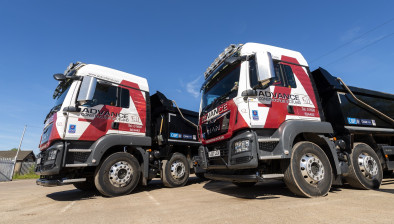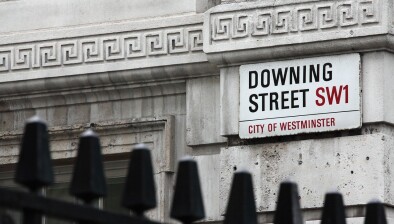Scottish construction leaders call for change in VAT reforms
Scottish construction chiefs are calling for the Treasury to change VAT reforms which they argue could cripple them further and cause massive job cuts.

From next month, Chancellor Rishi Sunak is planning to change the way construction firms pay VAT, in an effort to tackle fraud.
However, firms have said that the new measures for paying tax, known as a reverse VAT system, will hit small companies, could undo any recovery the industry makes from coronavirus, and will “limit the scope for protecting and creating jobs”.
The SNP has backed their calls to discard the policy, which is finally due to come into force from March 1 after being twice delayed due to COVID-19.
The news comes after the latest GDP figures released on Friday showed that the construction sector had shrunk the most in the last quarter, by more than 12%, while GDP overall fell by 9.9% – the fastest decline since records began.
The reverse VAT scheme is intended to tackle tax fraud within the construction industry, which the Treasury claims is a major source of revenue loss for the Exchequer.
However, building firms say it risks construction companies taking a substancial hit to their cash flows and could cost them more as they may need extra equipment or systems to process their tax returns.
The reverse charge is a way of accounting for VAT where the end customer, usually the main contractor, accounts for VAT and the supplier of construction services, usually the sub-contractor, does not.
The reverse charge means the customer receiving construction services has to pay the VAT to HMRC instead of the supplier paying it. The customer can then recover the VAT later.
HMRC is encouraging firms to move from quarterly to monthly VAT returns to minimise the impact on cash flow. Preparing for the scheme may require firms to change their accounting software and pay for advice from VAT specialists, The Herald reports.
Paul Sheerin, chief executive of Scottish Engineering, said: “If the UK Government moved the implementation date twice because of concern over cash flow then it should – as a minimum – be delayed again now. Construction supply chain companies have endured the most difficult of years. This simply isn’t the time to introduce an initiative that will impact smaller companies’ cash flow.
“There is no logic in providing furlough payments to keep companies alive only to put that survival at risk.”
Kirsten Oswald, the SNP’s deputy leader in Westminster and MP for East Renfrewshire, has lodged a motion in Parliament on the issue, backed by 10 other MPs.
She has criticsed the Treasury for pursuing the changes amid COVID-19 and said it will create a “triple whammy” of problems for construction firms alongside Covid and Brexit.
Ms Oswald said: “It is madness that the UK Government is ploughing ahead with this change – which could cause significant damage to the construction industry – at a time when firms are still being hammered from the twin effects of the pandemic and Brexit.
“With just a month to go until this change is due to come into effect, the Treasury must U-turn on their damaging plans now to prevent yet more businesses from going under.
“If they will not reverse their decision then at the very least they must delay it – as they have already done twice before to prevent hits to cash flows. In March, businesses are already facing first quarter business and personal tax deadlines after the winter months.
“In Scotland and across the UK, a significant number of small to medium-sized businesses will be affected by this change. For many, this third hit to their cash flow could see them go under. The UK Government must act and they must do so now.”
This week, Andy Mitchell, co-chair of the Construction Leadership Council, said the industry had suffered tremendously already. He said: “Our industry remains in extremely challenging times as we continue to adapt to ongoing COVID-19 rules, mitigate the impact of Brexit, and prepare for the forthcoming implementation of rule changes.
“(Reverse VAT) risks reversing any recovery industry has made from COVID-19 and will limit the scope for protecting and creating jobs across the UK.”
A UK Government spokesman commented: “The UK Government is committed to implementing the reverse charge on March 1. The Chancellor has announced an unprecedented package of support for the construction industry. This includes Government-backed loans, paying wages of furloughed workers, and tax deferrals.
“The delay to March 2021 is on top of the previous 12-month delay to allow firms additional time to prepare for the changes. However, VAT fraud in construction sector supply chains continues to present a significant risk to the Exchequer and the reverse charge is needed.
“The UK Government takes the impact on business very seriously and HMRC is aware challenges will entail for many in the sector. Once the reverse charge comes into effect there will be a lighttouch period where HMRC will seek to assist businesses.”

















